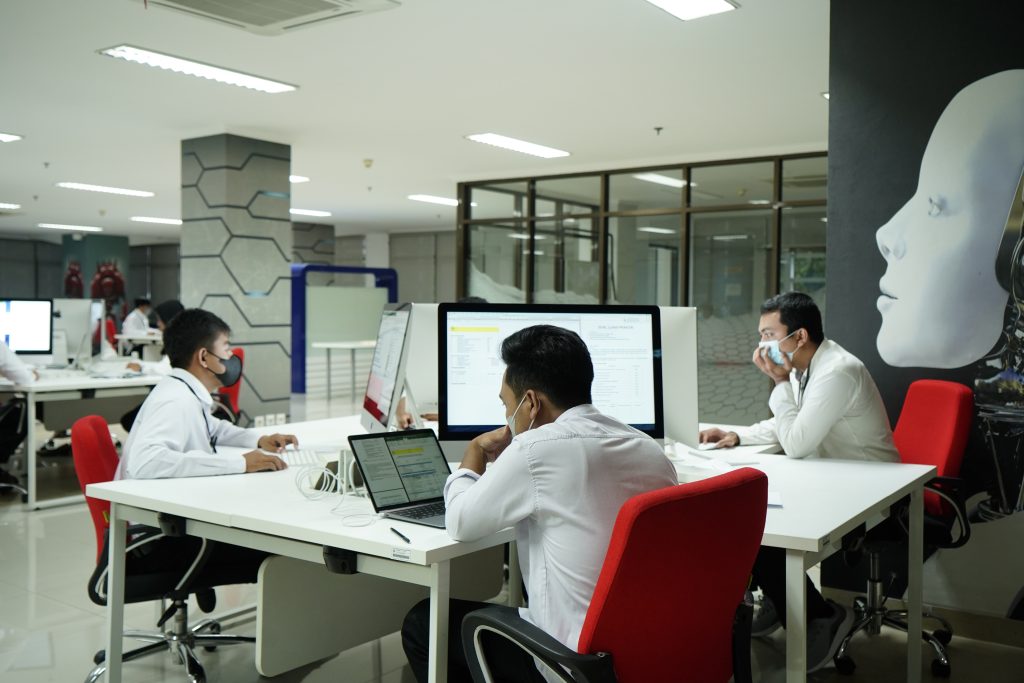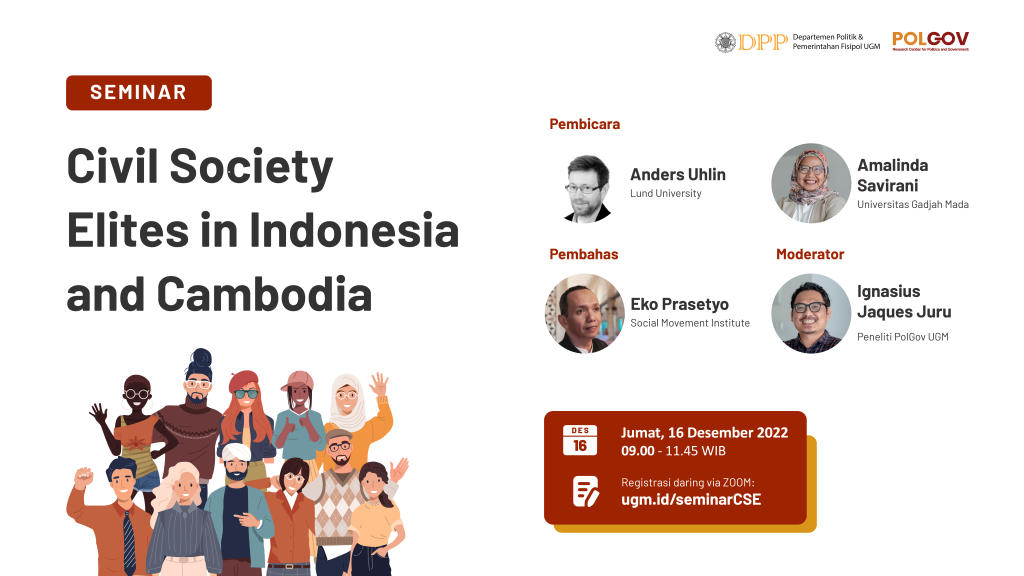Women’s Political Voices: Walking the Long Way to Political Justice
Yogyakarta – As part of launching a new channel called “Women’s Political Voice”, Mojok.co in collaboration with the Research Center for Politics and Government (PolGov), UGM Department of Politics and Government held a public discussion with theme “Voicating the Interests of Women in the 2024 Election”. This activity was held on Wednesday, 8 December 2022 at the 4th Floor Auditorium, BB Building, FISIPOL, Universitas Gadjah Mada, Yogyakarta.
This event presented four speakers with different backgrounds, such as academics, politicians, and women practitioners. The four speakers are MY Esti Wijayati (Member of the House of People’s Representatives (DPR) of Republic Indonesia/ PDIP Politician), Wasingatu Zakiyah (Caksana Institute), Dina Mariana (IRE Yogyakarta) and Desintha Dwi Asriani (Lecturer in Sociology UGM). This activity also presented GKR Hemas who is a member of DPD RI as the keynote speaker.
The event, which was hosted by Wigke Capri Arti (Lecturer in Politics and Government at UGM), tried to discuss the role of women in the national political stage amidst a political culture dominated by patriarchal perspectives. In addition, this event also wanted to encourage a more inclusive political space for women’s participation.
In her opening remarks, Deputy Dean for Research and Community Service, Cooperation, and Alumni of FISIPOL UGM, Fina Itriyati stated that FISIPOL UGM is committed to supporting all activities that encourage elections with integrity. FIna Itriyati also emphasize the importance of collaborative activities from various stakeholders to realize inclusivity and gender mainstreaming in the electoral realm.
Meanwhile, the Head of DIY DP3AP2 Erlina Hidayati Sumardi in her remarks emphasized the need for serious efforts so women can be actively involved in the political arena equally. In line with Erlina, Head of the Mojok Puthut Tribe EA also said the importance of having a shared learning space to educate voters, especially women. This is to create political awareness from women to voice their voices, so the percentage of women who are involved in public policy discourse through formal institutions such as the legislature or executive can increased.
In the talk show session, Desintha Dwi Asriani sparked the question of why women should be involved in practical politics. According to him, a more critical perspective is needed, both in a representative or substantive perspective in reading women’s involvement in politics.
“Regarding political awareness, normatively, compared to men’s comparison, perhaps women’s daily political culture is different in interpreting politics, different from what is interpreted by men. But in a more agentic perceptive, perhaps it is a form of female resistance. I don’t want politics, because resolving women’s political issues in daily life is much more strategic,” explained Deshinta.
Continuing what Deshinta said, Dina Mariana explained how women must face tough cultural challenges in the form of a lack of financial sovereignty and the dominance of masculine culture in the realm of public policy. Therefore, Dina emphasized that gender-wise, the composition of policy makers needs to be balanced through an affirmative approach, so that in terms of quality, policy products can be more equitable.
In his presentation, Wasingatu Zakiyah also explained that inequality in access to economic capital in the context of elections has harmed female cadres. Many female candidates who have invested in capacity for a long time have lost only because of the practice of money politics carried out by other candidates ahead of the election. Therefore, according to him, there needs to be serious effort in overcoming the culture of money politics, not only to create fair elections, but also to build a better political culture for the next generation.
Slightly different from Wasingatu Zakiyah, MY Esti Wijayati explained that there is still room for women to take part in politics even without large economic or political capital. MY Esti also explained that the existence of women is very important in the policy-making process. This is due to a better sensitivity towards several crucial issues, including issues related to women. Therefore, MY Esti encourages several female cadres to continue to be actively involved in the political space to fight for policy issues that are important to women.
“…the issue of how women are, especially when I’m talking about the elderly, to be echoed by women, the elderly needs to be happy, need to be prosperous. Meanwhile, many children leave their parents in orphanages and are never seen. It is also important to voice this out, because of the sensitivity regarding this, it is women who know better,” said MY Esti.
As the keynote speaker, GKR Hemas conveyed several challenges for women in the 2024 election, namely regulations that have not fully upheld gender equality, affirmative action has not been applied, patriarchal and masculine cultures are dominant, there is no political will, there are practices of political dynasties, the lack of active community activity. engage in political discourse.
At the end of the discussion, Wigke explained that the newest channel from Mojok.co called “Women’s Political Voice” is ready to cooperate with various parties, especially in filling out three sub-channels in the form of podiums, billboards, and ballot boxes. After the discussion session, this activity was closed with the chanting of several songs by Frau, a musician from Yogyakarta.
 Previous Post
Previous Post Next Post
Next Post